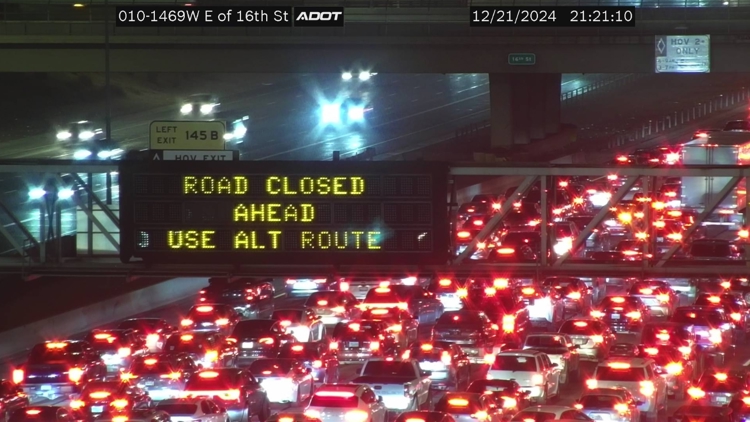
Navigating the Legal Consequences of Traffic Congestion on Interstate 10 Near 7th Street
The Situation: Intense Traffic on Interstate 10
Traffic jams are a persistent issue plaguing city roads worldwide, and Interstate 10 near 7th Street is no exception. In recent times, this specific area has witnessed an enormous escalation in vehicular congestion, creating a stressful situation for drivers and intensifying transit delays. The unprecedented standstill not only disrupts the daily commute but also unravels critical legal considerations relating to traffic management, infrastructure planning, vehicle emissions, and individual rights.
Insufficient Infrastructure: Legal Implications of Urban Planning
In most cities, inadequate infrastructure is a primary cause of traffic congestion. In the case of Interstate 10, the recurring traffic backup paints a clear picture of this underlying problem. A legally-grounded argument may suggest that authorities bear some liability for not adequately accommodating the expected traffic volumes. Do local governmental bodies owe the public a duty of sound urban planning to facilitate smoother traffic flow? This question raises a complex legal discussion about negligence, public policy, and government responsibilities for infrastructure development.
Emission Regulations: The Legal Side of Vehicular Pollution
Traffic congestion also significantly contributes to higher emission levels. The increased time automobiles spend idle on roadways, especially on jammed city arteries such as Interstate 10, result in a marked rise in harmful pollutants. Drivers and car manufacturers can potentially face legal repercussions for violating emission standards due to these extended idle times. Moreover, the broader implications of these heightened emissions on public health and climate change introduce further legal considerations, posing questions about environmental legislation and its effective enforcement.
Individual Rights: Exploring Potential Legal Recourses
From a standpoint of individual rights, the matter of unending traffic congestion can be quite controversial. The constant inconvenience caused by traffic congestion on Interstate 10 and similar roads could potentially be perceived as an infringement on citizens’ rights to free movement. Considering this, do individuals have any legal recourses to combat the obstructive traffic conditions they face daily? While this idea might seem far-fetched, it indeed initiates a productive discourse about citizens’ legal rights and freedoms versus the practical constraints of urban infrastructure and traffic management.
The Future of Traffic Regulations: A Legal Perspective
What’s undeniable is that the legal implications of traffic congestion are vast and multifaceted. They demand a comprehensive understanding of traffic laws, environmental regulations, public policy, and constitutional rights. As we confront the persisting issue of traffic backup on Interstate 10 and other substantial roadways globally, we must evaluate the situation through this multi-pronged legal lens. The development and enforcement of appropriate legislation can not only alleviate present traffic issues but also pave the way for better, more efficient transit conditions in the future.
Final Thoughts
Ultimately, the severe traffic congestion reported on Interstate 10 near 7th Street resonates as a desperate call to action. It’s a reminder of the urgent need to consider a broader legal perspective and use our collective power to motivate change in traffic regulations, urban planning, vehicle emissions standards, and the recognition of our rights as commuters. With an interdisciplinary approach, it is indeed possible to resolve the complexities of traffic congestion, ensuring the wellbeing of drivers, the environment, and the city at large.
Originally Post From https://www.12news.com/article/traffic/heavy-traffic-backup-interstate-10-near-7th-street/75-ceb12fdb-aa92-413c-aa74-8b98f59829f9
Read more about this topic at
Why am I getting the error ‘Access Denied’?
same old question network access permission denied

